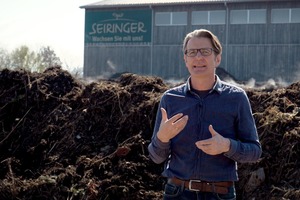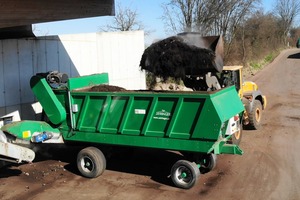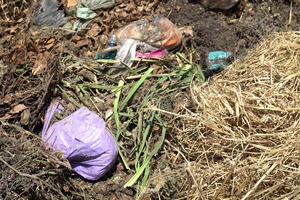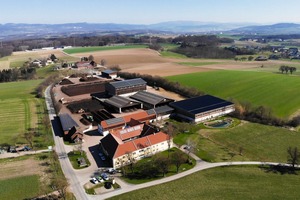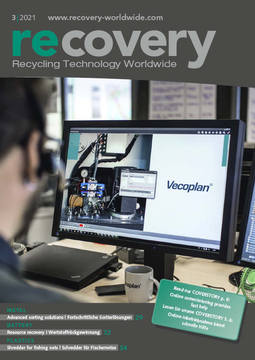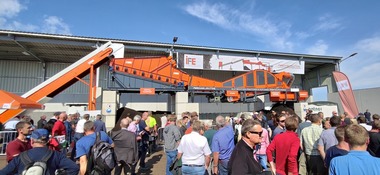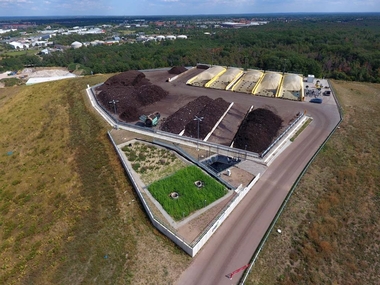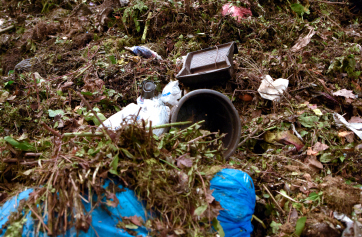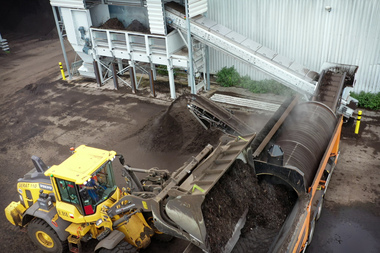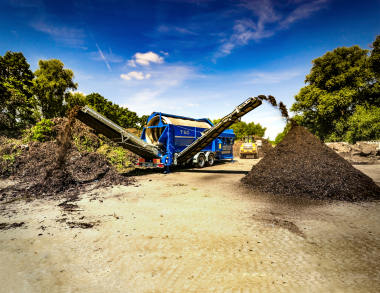„There will probably never be a biowaste that is completely free of impurities!“
Hubert Seiringer looks critically at the perfectly lined-up compost heaps. He doesn‘t even notice the snow-covered peak of the Ötscher, which shines idyllically in the distance. His focus is on the colourful plastic films, shiny metals and other impurities protruding from the brown mountains.
Just like other composting plant operators, Hubert Seiringer from Wieselburg (Lower Austria) struggles with the impurities in the organic waste that is delivered. As a committed composting plant operator, he deals intensively with such challenges, but also with the trends in the industry. In conversation with IFE, he talks openly about it and repeatedly emphasises that high-quality material handling technology is one of the key factors for successful operation.
IFE: Mr. Seiringer, you have been working intensively with compost for over 30 years. What is it that fascinates you so much?
Hubert Seiringer: Nature knows no waste, only nutrients for new life. It‘s absolutely right to call high-quality compost black gold and whether in private gardens or in agriculture, our soils urgently need humus and nutrients to produce healthy and high-quality food again.
IFE: What challenges do composting plant operators face today?
Hubert Seiringer: 30 years ago, all waste was disposed of in landfills, with problematic consequences for our environment. Although today about 1 million t of organic waste is collected separately in Austria, 1/3 of the residual waste still contains organic waste and is incinerated. I always say that we are burning soil and water and thus the fertile soil of our children.
We have to find modern ways to bring the valuable organic waste into the organic waste bin as pure as possible in order to be able to produce high-quality compost. Contaminants should be avoided as far as possible. For the remaining contaminants, we need the most efficient technology possible to remove them from the compost.
IFE: On the other hand, the quality demands of customers for compost are growing. How can compost still be sold profitably?
Hubert Seiringer: Compost can only be marketed well in the long term if the plant compatibility is good and impurities are reduced to an absolute minimum. In addition to a clean organic waste bin, modern and particularly efficient compost processing technology is therefore indispensable.
It is technically and legally almost impossible to remove impurities at the beginning of the composting process. The composting process must be as gentle as possible and screening must be combined with reliable and efficient material handling technology. This is the only way to ensure good compost marketing.
IFE: So where is the trend in compost and soil marketing heading?
Hubert Seiringer: Whether on the balcony, in the big city or in one‘s own vegetable garden. Gardening and self-sufficiency with high-quality, fresh food is becoming more and more important. This requires high-quality, organic soils that are free of impurities and allow even beginners to have fun with gardening and their own vegetables.
IFE: However, this new awareness does not seem to be expressed in the collection quality of green and organic waste.
Hubert Seiringer: If we don‘t want to lose the valuable bio waste through the chimney of waste incineration, but rather return it to our soils as valuable compost, then we need biowaste collection that is as clean as possible. We have to react to the remaining misdirected waste with appropriate technology.
IFE: How does the legislator address these issues?
Hubert Seiringer: In Austria, for example, the Compost Regulation has already defined limits for contaminants in compost since 2001. However, a tightening of this regulation is foreseeable. In Germany, too, an amendment to the Biowaste Regulation is currently being hotly debated. The current draft stipulates that biowaste should not contain more than 0.5 % impurities before treatment.
IFE: What do you think of these measures?
Hubert Seiringer: In any case, it is right to start at the source. However, this means that all those involved in the collection of biowaste are responsible. The composting plant operator is at the end of the recycling chain. Therefore, this part of the responsibility must be transferred to the waste producers and the collectors and not to the recyclers.
Investments in high-quality material handling technology and corresponding certifications will nevertheless be unavoidable for compost plant operators – not only to comply with new legal environmental protection measures, but also so that the growing quality demands of the buyers can be met.
IFE: In conclusion, how would you describe the outlook for the compost industry?
Hubert Seiringer: The compost industry is literally on fertile ground. Few industries can claim to be able to make such a good contribution to a world worth living in. We have been doing this for 30 years with great enthusiasm and conviction.

